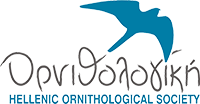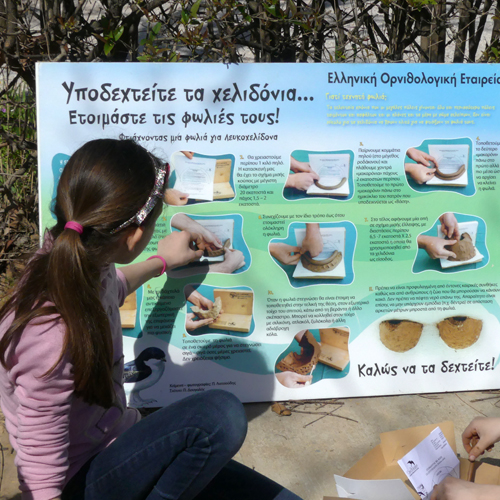The Erasmus+ Blooming Schools project is implemented by the Hellenic Ornithological Society, in collaboration with partners from 3 countries (Portugal, Malta and Romania). The project has duration of 3 years, from 2022-2024 and is co-funded by the European Union.
The Project
Using STEAM education (science, technology, engineering, arts and maths) as a key pillar for creating activities based on the Sustainable Development Goals (SDGs), the Project aims to empower educators theoretically and practically, with relevant materials, to create wildlife gardens in schoolyards. At the same time, the Project aims to inform students about the importance of these gardens as well as to involve them more actively in the implementation of actions that help to better inform and change attitudes for the benefit of urban biodiversity and environmental awareness in general.
The objectives of the Project
Creating wildlife gardens in the Mediterranean, through actions such as:
- Design of activities through which educators and students can create a wildlife garden in the schoolyard
- Writing a list of Mediterranean species of different plants that grow in a wildlife garden
- Pilot creation of a wildlife garden by students and their educators with community participation, in order to find out what is more effective for each country's school system
- Writing and designing of instructions and practical activities to ensure learning outcomes in conjunction with STEAM education
Activities based on the Sustainable Development Goals (SDGs), such as:
- Collection of studies aiming at mapping different SDGs and case studies from both partners and various environmental organizations and educators
- Creation of new and innovative environmental education programmes for adolescents
- Creation of an online catalogue of best practices and suggestions on how we can apply case studies to real-life scenarios
- Creation of a manual with project-based activities to cover the SDGs that can be used as resources by the educators
STEAM education and training sections, such as:
- Mapping of STEAM education in the case studies collected and production of additional materials to support nature based learning through STEAM
- Creation of a reward system for schools that run the programme or parts of it
- Creation of a training programme for educators, to equip the teacher to use STEAM education as a means of learning in nature and various environmental projects
Strategically engagement of youth groups for nature, through actions such as:
- A small-scale investigation to find out what interests adolescents more and what motivates them to participate in extracurricular activities
- Creating opportunities for the active engagement of young people, taking into account the best available tools to reach this audience. Engagement will be achieved through actions such as:
- Developing a positive vision with clear objectives and key messages
- Focus on "cool" things that attract young people and can trigger their curiosity about nature
- Working with educators to better support the approach to this specific age group
- Networking young people through a series of short clips on social media platforms that will mainly set questions about nature and the environment
Development of digital skills through the Vlogging Academy for sustainability:
- Content creating and familiarising young people with the world of vlogging and the social media
- Developing the 4Cs strategy (Creativity, Collaboration, Critical Thinking and Communication), developed by the World Economic Forum
- Suitably adapted programme to train young people in content creating aiming to raise awareness on environmental protection
- A youth exchange of secondary school students in Romania aiming to put theory into practice by raising public awareness on climate change and how each individual can contribute to a more sustainable future
Final objectives of the project
Adaptation of the handbook to national languages and to any differences in the species lists of each partner country.
Organize events to train more educators about learning in nature and how to create wildlife gardens*.
* Hellenic ORNITHOLOGICAL Society has proposed two locations: the urban metropolitan park "Antonis Tritsis" and the wetland of Vravrona, where environmental education programmes for all educational levels are already being implemented. Some of the activities hosted in these areas can serve as case studies and as a basis for the design and pilot implementation of new activities for secondary school students.




